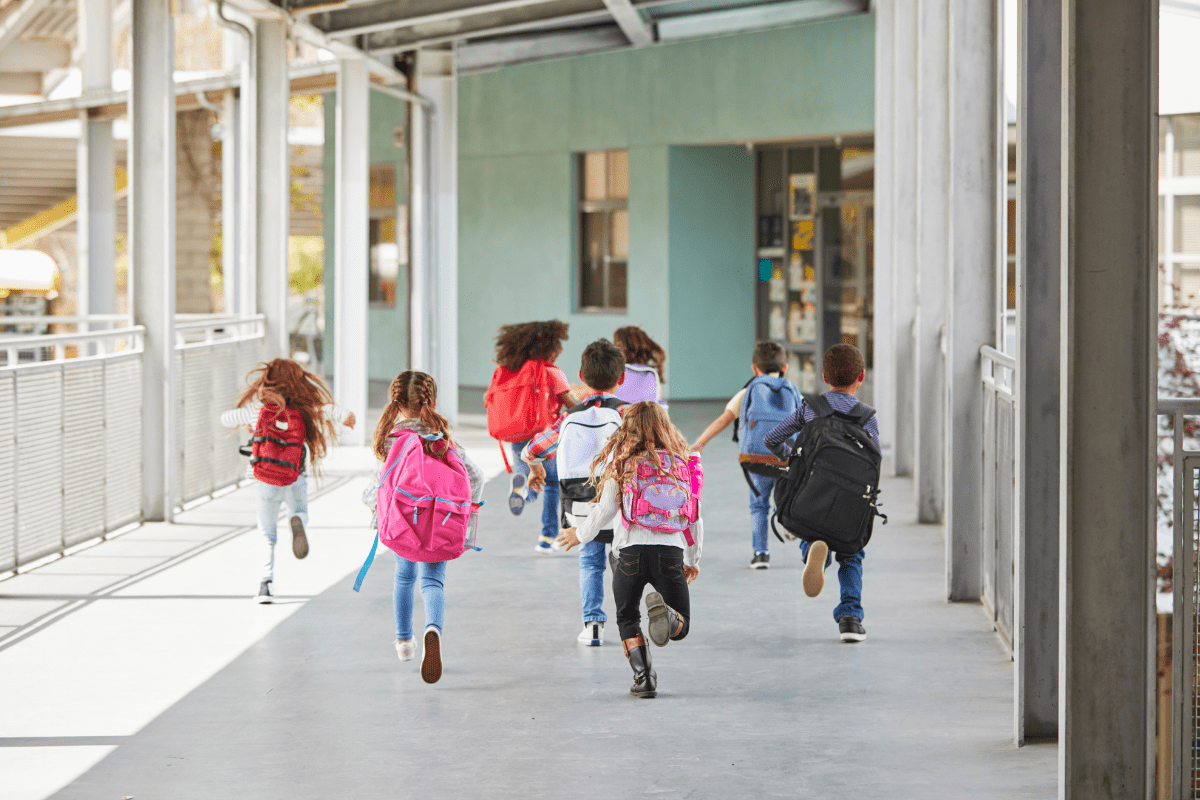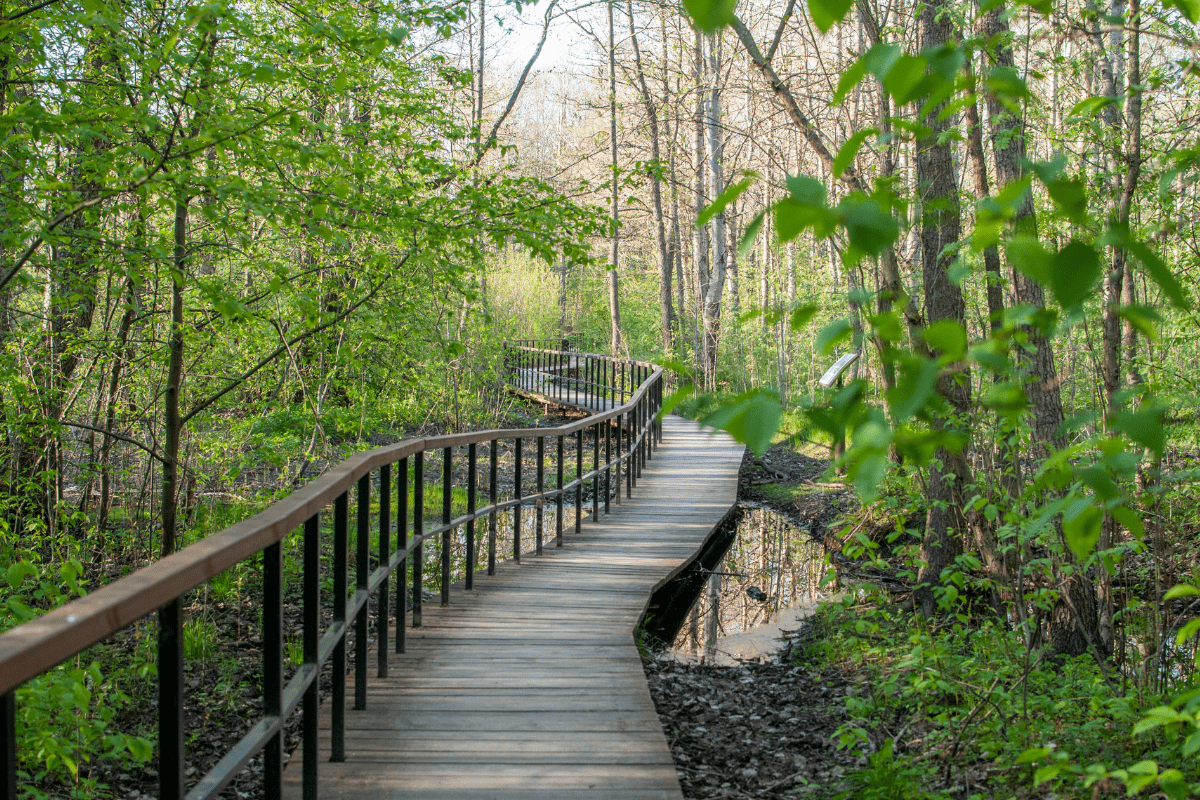If you've ever tried juggling work deadlines while fielding texts about forgotten homework and wondering if your kid is actually at basketball practice or secretly playing Fortnite at a friend's house, welcome to the club. The good news? Seattle has more after-school options than a tech startup has buzzwords, and I've done the deep dive so you don't have to spend your lunch break comparing 47 different programs.
The Seattle after-school scene is actually pretty amazing
Here's something that might surprise you: over 13,000 kids participate in city-run programs alone. That's not even counting all the private options, sports leagues, and that neighbor who teaches violin in her garage. The whole system basically runs through three main channels: Seattle Parks and Recreation (they have 26 community centers, which is honestly impressive), school-based programs through partnerships with fancy-sounding organizations like DEEL, and community groups like the YMCA that have been keeping kids busy since your grandparents were young.
Dr. Dwane Chappelle from DEEL puts it nicely when he says these programs give kids "a space where young people can explore their interests, build confidence, and develop relationships with mentors." Translation: your kid might actually find something they love besides YouTube. The stats back this up too… students in quality after-school programs show 40% improvement in reading and math grades. And here's one for the budget-conscious parents: every dollar invested in these programs returns about $3 in societal benefits. So basically, signing up your kid for pottery class is practically a civic duty.
But before we dive into all the amazing options, let's talk about the two things that make Seattle's system actually work for real families: scholarships and free transit.
Money shouldn't stop your kid from joining
The Seattle Parks Scholarship Program is basically the best-kept secret in town. Depending on your income, you can get 50%, 70%, or even 90% off program fees. That saves families an average of $3,199 annually, which is… a lot of coffee. The application takes about 20 minutes online (less time than it takes to help with Common Core math homework), and it's available in eight languages including Chinese, Somali, and Vietnamese.
Here's the catch though: you need to apply BEFORE registering for programs. I learned this the hard way. Processing takes up to two weeks during busy times, so don't wait until the night before registration opens. Trust me on this one.
And transportation? All youth 18 and under ride public transit free throughout the entire Puget Sound region. That includes Metro buses, Sound Transit, and even the ferries. So when your 12-year-old insists they're mature enough to get to chess club on their own, at least you won't have to fund their Orca card.
Seattle Parks and Recreation runs the show
Let's start with the big kahuna of after-school programs. Seattle Parks operates licensed school-age care from 7 a.m. to 6 p.m. for kids ages 5-12. There's a $50 one-time registration fee (think of it as the price of admission to sanity), plus monthly payments that vary by location. These aren't just glorified babysitting services either… they include arts and culture, sports, outdoor play, and actual homework help from people who understand new math.
Community Learning Centers are where it's at
The city's Community Learning Centers serve about 3,300 students annually at five middle schools and one elementary school. They run Monday through Thursday, typically from 3:45 to 5:15 p.m., which is perfect for that awkward gap between school ending and you getting home from work. These programs offer academic instruction, enrichment activities, mental health support (because middle school is rough), and even college readiness programs. Yes, they're thinking about college in middle school now. No, I don't know when that started either.
Teen programs that don't make kids roll their eyes
Seattle has three dedicated Teen Life Centers in Garfield, Meadowbrook, and Southwest Seattle that actually understand teenagers. Their Late Night programs run Fridays and Saturdays from 7 p.m. to midnight for ages 13-19. Before you panic about midnight activities, these centers have computer labs, recording studios, cooking classes, and job training. There's even a nine-week summer musical theater program, because apparently some teens voluntarily sing in public.
Finding the right community center near you
North Seattle families can check out Ballard Community Center, which has a boat-themed playground that makes drop-off more fun. Northeast Seattle offers options at Lake City, Laurelhurst, and Magnuson Community Center, where over 300 kids yearly do nature programs instead of staring at screens.
Central Seattle's International District/Chinatown Community Center serves multilingual communities, which is great if your kid wants to practice their Mandarin with actual speakers. South Seattle has Jefferson Community Center on Beacon Hill, which randomly has a mock trial team. Because nothing says "after-school fun" like pretending to be a lawyer, apparently.
West Seattle families have High Point and Delridge centers, though heads up: South Park is temporarily closed for renovations. They've moved programs to nearby schools, so check the full community center list for current locations.
Sports leagues for every type of kid
Whether your child dreams of World Cup glory or just needs to run around until they're too tired to argue about bedtime, Seattle's got options.
Soccer takes over Seattle (in a good way)
The Seattle Youth Soccer Association is massive, serving over 12,000 kids ages 5-19. They have 12 neighborhood recreational clubs for the "let's just have fun" crowd, plus Seattle United for kids who eat, sleep, and breathe soccer. Both fall and spring seasons are available, and there's even an optional spring league from March to June where they don't keep score. Finally, a sport that gets it.
They also run TOPSoccer for children with disabilities and the UNITE program for ages 6-18 with intellectual or physical disabilities. Registration happens through individual neighborhood clubs, so you'll need to find your local one. Pro tip: some clubs fill up faster than Taylor Swift concert tickets, so mark your calendar.
Multi-sport options for the undecided
i9 Sports is perfect for kids who can't pick just one sport. They offer flag football, soccer, basketball, baseball, and volleyball for ages 3-14. Their whole philosophy is that everyone plays, there are no tryouts, and teams only practice once a week before games. It's basically sports for kids who have other interests too.
The Jr. Storm and Jr. NBA programs launched in 2022 and expect to reach 6,500 kids in the Puget Sound area. Kids get official NBA/WNBA branded uniforms (which instantly makes them cooler), professional curriculum, and special event access. They partner with Boys & Girls Clubs and YMCAs, so check those locations for availability.
YMCA keeps it simple and affordable
The YMCA offers seasonal sports at 14 branches for $75 if you're a member or $100 for community members. They have "Affordable for All" pricing based on household income, because they get that not everyone has tech-salary money. Registration opens quarterly on:
- March 1 (spring sports)
- May 1 (summer programs)
- September 1 (fall leagues)
- November 1 (winter activities)
Set those phone reminders now. You're welcome.
Nature programs for screen-tired kids
Sometimes kids need to remember that not everything interesting happens on a device. Seattle's outdoor programs are perfect for this reality check.
IslandWood serves 30,000 students annually through overnight programs on Bainbridge Island and day programs around the area. Yes, overnight programs. Yes, without you. Yes, they'll be fine. Probably better than fine, actually.
Birds Connect Seattle (they used to be Seattle Audubon before rebranding) runs nature camps for ages 5-11 at $425-450 per week. Before you choke on that price, they offer scholarships covering 25-85% of fees based on need. Their Young Birders program for teens is completely free and includes monthly meetings and field trips from October through June. Your teenager might actually become the person who points out bird species on family hikes. You've been warned.
The Nature Consortium provides free environmental art classes for at-risk youth ages 5-19 in low-income King County communities. It's basically Bob Ross meets David Attenborough, but for kids.
Arts programs that might reveal hidden talents
Seattle's arts scene isn't just for adults with complicated coffee orders. Kids can get in on the action too.
Music programs from free to fancy
Seattle Music Partners is completely free for low-income 4th and 5th graders at schools like Lowell, Leschi, Bailey Gatzert, and Madrona Elementary. Kids get one-on-one tutoring plus weekly group lessons twice a week, and they provide the instruments. Middle schoolers can continue at Yesler Community Center on Wednesday evenings. It's like having a private music teacher, except you don't have to pretend your kid practices daily.
For more structured learning, School of Rock has two Seattle locations with programs from Rookies (ages 6-7) through adult classes. Students actually perform at local venues, which means you might find yourself at a dive bar on a Tuesday night cheering for your 10-year-old's Led Zeppelin cover. Life takes unexpected turns.
The Seattle Youth Symphony Orchestra is the nation's largest youth orchestra training program. They offer free programs too: Music Youth Southeast for grades 6-12 in South Seattle and the Cadenza program for 4th-5th graders in Southeast Seattle. Most programs require auditions though, so maybe hold off if your kid just started violin last week.
Theater, dance, and visual arts
Theater kids, rejoice! Options include Seattle Children's Theatre drama school at Seattle Center, Youth Theatre Northwest on Mercer Island (13 productions annually!), and Studio East in Kirkland, which gives out $30,000+ in scholarships yearly.
Pacific Northwest Ballet School ranks among the nation's top three ballet training institutions and serves over 1,000 students annually. They have serious professional training programs, but also classes for kids who just want to wear tutus and spin around.
For visual arts, Gage Academy offers free Teen Art Studios for ages 13-18 at multiple locations. Pratt Fine Arts Center has summer camps at $468 per week for younger kids, plus teen programs where they can learn glassblowing. Yes, teenagers working with molten glass. What could go wrong?
Academic support that actually helps
Look, we all want our kids to succeed academically, but sometimes they need more help than we can provide after a full day of work and our own forgotten algebra skills.
Free tutoring that doesn't feel like punishment
The Seattle Public Library runs homework help at nine branches Monday through Thursday from 3:30 to 7:30 p.m. during the school year. No reservations needed… just show up. They have 180+ volunteers helping 1,100+ students annually, and 70% of participants report better homework understanding. Virtual tutoring through Tutor.com is available seven days a week in English, Spanish, and Vietnamese.
Seattle Public Schools also runs a Youth Tutoring Program with volunteers. It's less structured than the library option but still helpful for kids who need that extra boost.
Paid programs for more intensive help
Boys & Girls Clubs offer structured study halls with tutoring for grades 1-12, running Monday through Friday from 2:30 to 6:30 p.m. It costs $50 for annual membership plus $200 monthly for the Elementary After-School Program, but that includes hot meals and Seattle Public Schools bus service. Basically, they handle everything except actually doing the homework.
For kids who need serious academic intervention, Kumon runs $150-200 monthly per subject for individualized math and reading instruction. Sylvan Learning Centers charge $40-100 per hour for personalized tutoring. Yes, that's a lot, but sometimes you need the big guns.
STEM programs for future techies
Pacific Science Center runs camps and workshops for PreK-8 students with 300+ scholarship spots available. Girls Who Code offers free after-school clubs for girls and non-binary students in grades 3-12. Their participants major in computer science at five times the national average, so this could be your kid's ticket to actually understanding what you do for a living.
FIRST Robotics teams operate at many Seattle high schools. Team XBOT #488 serves Southeast Seattle students completely free. Your kid could be building robots instead of just playing with them on their phone.
Coding with Kids serves over 100 Seattle schools, while Code Ninjas offers game-based coding for ages 7-14 with summer camps at $225-250 per half-day week. For the intensive experience, iD Tech runs camps at UW starting at $1,149 per week. That's… significant, but they might create the next big app, so think of it as an investment?
Language learning beyond Spanish class
Seattle Public Schools offers world languages including Spanish, French, Japanese, Mandarin, German, ASL, and Latin. Yes, Latin. For kids who want to really commit to being unique.
The Seattle Japanese Language School has been around since 1902 and offers Saturday youth classes from 9:30 to 11:30 a.m. Sponge Language School teaches six languages to younger kids using immersion, and they've won multiple awards. Your preschooler might come home speaking better French than you learned in four years of high school.
Making it all work for your family
Now for the practical stuff that determines whether any of this actually happens or just remains a beautiful dream.
Registration timelines to tattoo on your arm
YMCA BASE programs for 2025-26 are currently open and close 10 days before school starts. Seattle Parks typically opens early registration in April-May for returning families, then general registration after that. Remember: get that scholarship application approved BEFORE trying to register for programs. I cannot stress this enough.
Some programs like popular sports leagues and camps fill up within hours of registration opening. It's like trying to get concert tickets, but with more spreadsheets and less fun. Set calendar reminders, prepare your credit card info in advance, and maybe take the morning off work if you're serious about getting into specific programs.
Getting kids where they need to go
The free youth transit is a game-changer, but kids still need to know how to actually use the bus system. Maybe practice the route together first? Seattle Public Schools provides buses to many after-school programs, and organizations like the YMCA and Boys & Girls Clubs often run their own transportation. Many programs intentionally cluster near transit hubs because they know parents can't be in three places at once.
Understanding the real costs
Here's the breakdown nobody actually tells you:
Free options: Seattle Music Partners, Teen Art Studios, Girls Who Code, library tutoring, many community center drop-ins, Young Birders
Low-cost ($50-200 per session): Community center programs with scholarships, PASS Program sports funding (up to $150 per season for families on free/reduced lunch)
Moderate ($200-500 per session): YMCA programs, private sports leagues, standard camps
Premium ($500+ monthly): Elite sports training, intensive tutoring, specialized tech camps
The scholarship programs really do work. I've seen families go from paying $400 monthly to $40 with the right paperwork. It takes effort, but it's worth it.
Age-appropriate choices that won't bore your kid
Elementary schoolers need variety… think programs that combine homework help with running around and maybe some art. They're still figuring out what they like, so exposure to different activities is key.
Middle schoolers are all about identity and friends. Look for programs that let them explore interests while hanging out with peers. This is when they might discover they're really into robotics or theater or competitive duck herding (okay, that's not offered, but in Seattle, who knows).
High schoolers need programs that actually prepare them for what's next, whether that's college, career, or just becoming a functional adult. Programs like Rainier Scholars provide 12-year support from 5th grade through college graduation and achieve a 91% college graduation rate. That's compared to 65% nationally, so clearly they're doing something right.
Start now, thank yourself later
Here's the thing about Seattle's after-school programs: they're incredibly comprehensive, surprisingly affordable with the right resources, and genuinely good for kids. But they're not going to sign themselves up for your child. Start by checking out the Seattle Parks website, applying for scholarships if you need them, and marking registration dates in your calendar with multiple alarms.
Your kid might discover a passion for Japanese, become a chess champion, or just have a safe place to do homework while you finish your workday. Whatever happens, at least they won't spend every afternoon asking what there is to eat while simultaneously rejecting all food options. And really, isn't that worth filling out a few forms?





